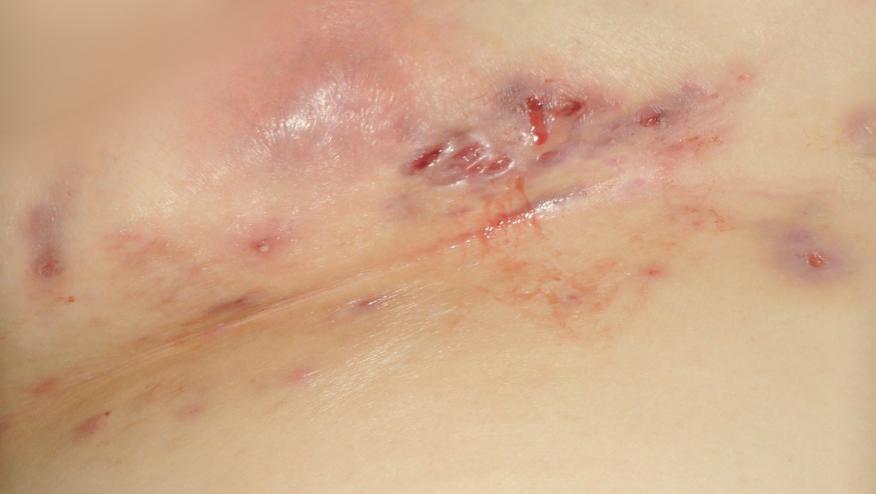CRP and Hidradenitis Supprativa Save

A post hoc analysis of 2 phase 3 randomized clinical trials (PIONEER I and II) of adalimumab vs Placebo in patients with active Hidradenitis suppurativa (HS) demonstrated more severe HS that was associated with elevated CRP had a higher BMI. Adalimumab was equally effective in patients regardless of elevated CRP levels.
HS management can be problematic and rates of biologic failure remain substantial. This study sought to evaluate if biomarkers may help clinicians decide on therapy and outcomes. C-reactive protein (CRP) is an accessible marker of systemic inflammation that correlates with interleukin 6 and Hurley stage.
A total of 588 PIONEER participants were randomized to adalimumab, 40 mg, weekly or placebo for 12 weeks. 464 (78.9%) had elevated CRP and 124 (21.1%) had normal CRP. Mean BMI differed between patients with vs without elevated CRP (mean 34.1 vs 28.6; P < .001). Patients with elevated CRP also had more severe cutaneous disease.
Overall, an elevated CRP at baseline was associated with lower odds of clinical response (OR 0.53; 95% CI, 0.34-0.83). In patients who received adalimumab and had elevated CRP, each 1-unit increase in CRP was associated with reduced odds of clinical response.
However, adalimumab yielded significant efficacy responses regardless of whether there was an elevated CRP (OR, 3.18; 95% CI, 2.13-4.81) or normal CRP (OR, 2.25; 95% CI, 1.06-4.88).
The findings did suggest that adalimumab may be less effective in patients with the most severe inflammatory load; This with nonresponders, clinicians may consider weight-based dosing of adalimumab, checking drug levels, or trialing alternative biologics.










If you are a health practitioner, you may Login/Register to comment.
Due to the nature of these comment forums, only health practitioners are allowed to comment at this time.